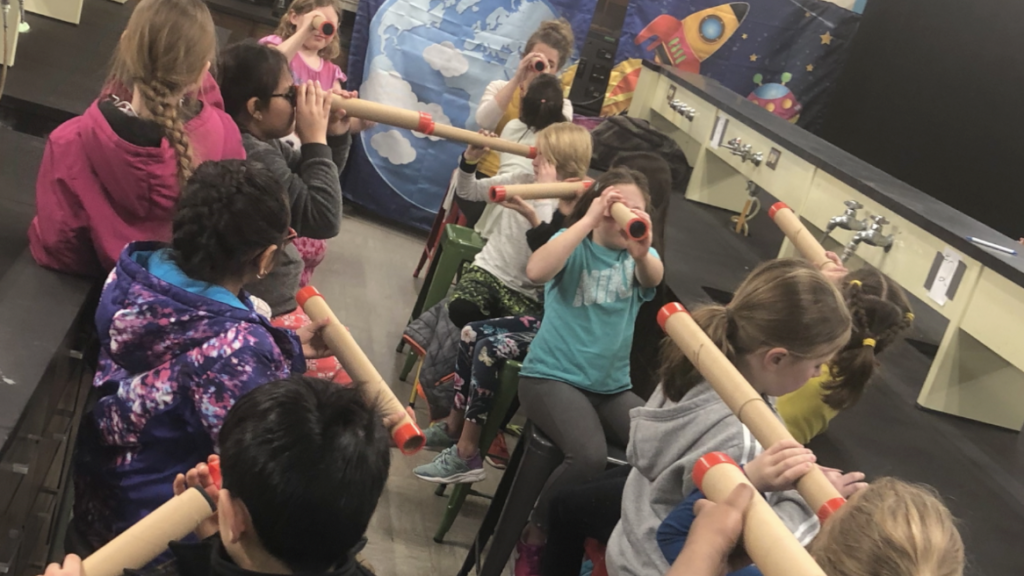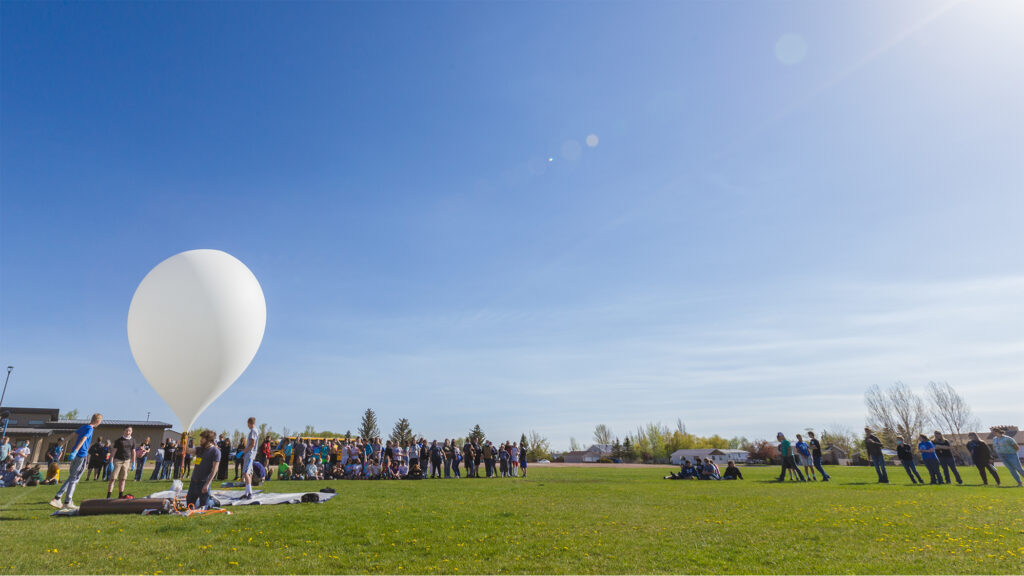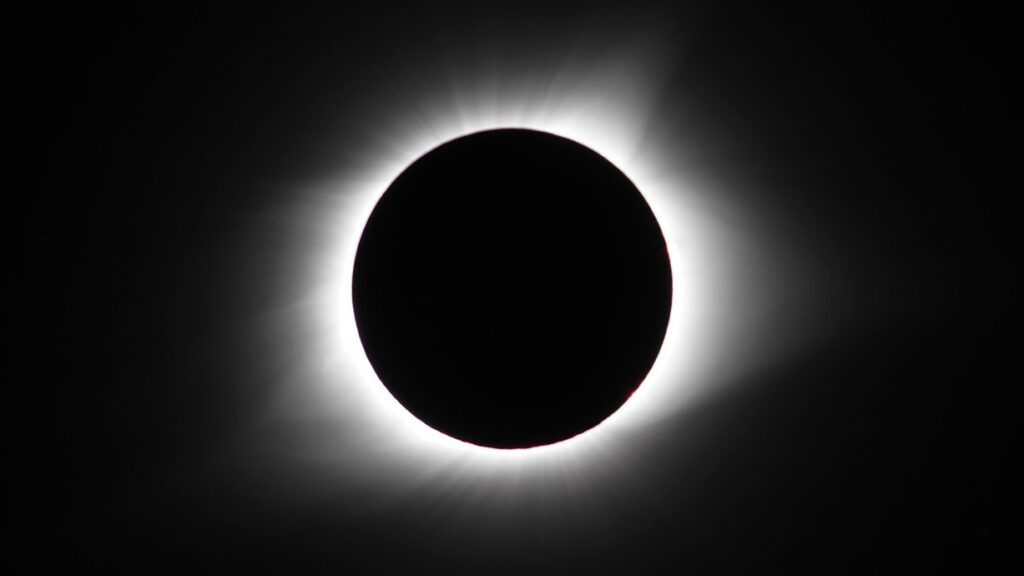TWO-YEAR GRADUATE FELLOWSHIP OPPORTUNITY
— K-12 Outreach, Ballooning, and Solar Eclipses —



Application Deadline
May 6, 2022
Overview
The Wyoming NASA Space Grant is seeking one enthusiastic graduate student to help with several projects and programs over the next two years. This unique fellowship opportunity will provide the student with two years of funding from 2022–2024. Each semester, the student will participate in regular K-12 outreach events with both the Science Kitchen (weekly) and the Space Grant’s high-altitude balloon program (monthly). In addition, beginning in Spring of 2023 the student will co-lead a team of undergraduate students tasked with launching weather balloons for the 2023/2024 Nationwide Eclipse Ballooning Project. In total, we expect that the student will average about 20 hours/week working on fellowship-related activities. The full list of fellowship expectations is provided below.
Eligibility
- Open to graduate students in good standing at the University of Wyoming
- Student must plan to be enrolled full time at UW through at least August 2024
- Student must be a U.S. citizen
Fellowship Award Details
The graduate fellowship runs from September 2022 through August 2024. All travel-related expenses are covered. It also includes the following:
- A $20,000 stipend for each 9-month academic year (September–May)
- Costs for tuition, fees, and health insurance
- A summer stipend (or partial stipend) may be available for both 2023 and 2024
Application Submission
A full application must included the following:
- Online Application Form – To begin, click on the red APPLY HERE button above
- Personal Statement of Interest – (2 pages max) Why are you interested in this fellowship? What makes you a good fit? Please highlight any relevant experience with K-12 outreach, field research, or team collaboration.
- Student resume or CV – (2 pages max)
- Student Transcripts – (No page limit) Unofficial transcripts are acceptable.
- Letter of Recommendation – Submitted by your graduate advisor. The letter must come directly from the advisor and can be submitted via our online tool or emailed directly to wsgc@uwyo.edu.
Award Selection Criteria
Only one student will be chosen for this fellowship. Applicants must be able to meet the fellowship expectations and commitments that are described below. Ph.D. students will receive stronger consideration since they generally have more flexibility in their schedules, especially once the majority of their coursework is completed. Applicants who exhibit good leadership skills, genuine interest in K-12 outreach and field work, and a willingness to work collaboratively as part of a team will also receive stronger consideration. The top applicants will each be given an in-person interview with Space Grant staff to help us determine who would be the best fit for this fellowship.
Fellowship Expectations
Science Kitchen
(5–10 hours/week) The Science Kitchen is a place where students can learn about the physical sciences, natural sciences, and STEM in general, through hands-on exploration and problem solving. As part of this fellowship, the graduate student is expected to:
- Participate in (Year 1) and then lead (Year 2) volunteer training sessions for outreach volunteers
- Lead hands-on activities for pre-K–12th graders in the Science Kitchen and at local schools
- Under the guidance of the Science Kitchen director, create hands-on, inquiry-based activities
High-Altitude Balloon Program
(15–20 hours/month) Since 2014, our high-altitude balloon program has involved more than 30 K-12 schools and 2,500 students across Wyoming. We aim for about one high-altitude balloon flight per month during the school year and a couple over the summer. As part of this fellowship, the graduate student is expected to:
- Participate in the majority of high-altitude balloon events throughout the year
- Travel with our balloon specialist to/from various launch sites (e.g., schools) across Wyoming
- Assist with specific tasks before, during, and after balloon flights (including payload recovery)
Nationwide Eclipse Ballooning Project (NEBP)*
(5–10 hours/week) Led by the Montana Space Grant, this project seeks to immerse teams from a wide range of higher education institutions in an innovative NASA-mission-like adventure in data acquisition and analysis during the 2023 annular and 2024 total solar eclipses. We plan to recruit a team of undergraduate students to participate as one of the atmospheric science teams. As part of this fellowship, the graduate student will co-lead this team with our balloon specialist and will be expected to:
- Help recruit and mentor the undergraduate students
- Participate in virtual training sessions and professional development opportunities
- Attend an in-person NEBP workshop in May 2023
- Become adept at launching small weather balloons and operating radiosonde systems
- Assist with hands-on “work days” in preparation for both solar eclipses
- Participate in field campaigns for both the October 14, 2023, annular solar eclipse and the April 8, 2024, total solar eclipse
- Assist with post-eclipse research efforts (and possibly manuscript co-authorship) during Summer 2024
* This assumes that the UW team will indeed be chosen to participate in the NEBP. Although this is a very high likelihood at this point, we will not find out for sure until December 2022.
General Requirements
- The graduate student must grant the Wyoming NASA Space Grant the right to use any photos or videos showing the student, including use on the internet, in promotional material, in print, and in Aother forms of media

